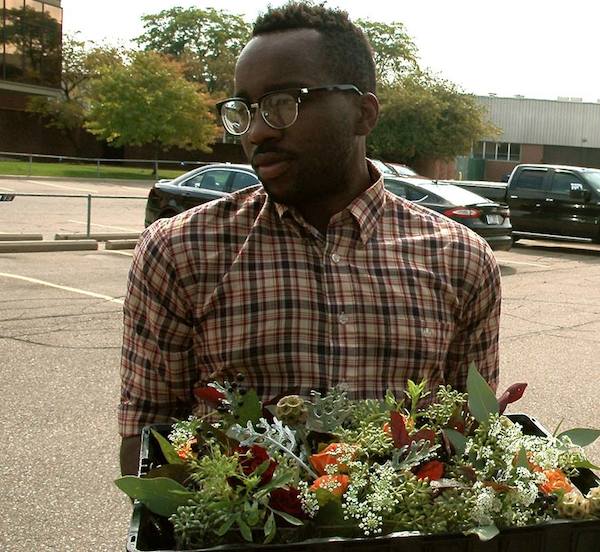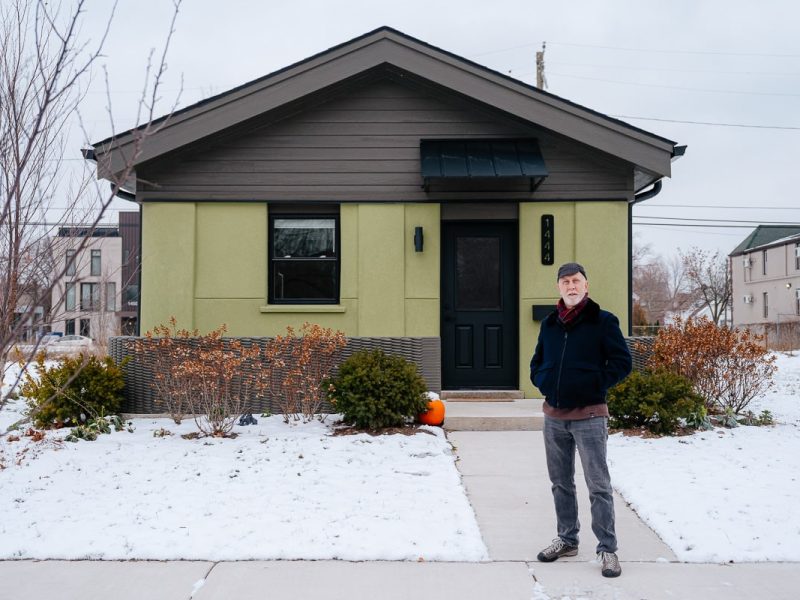Opinion: Social entrepreneurship is sick
Writer and social entrepreneur Tunde Wey calls out the very hand that feeds him in this wide-ranging and romantic meditation on doers, fixers and problem solvers that reaches back to Henry Ford and looks forward to a more self-aware future.

When all the world recognizes good as good
it becomes evil
–Lao Tzu (Tao Te Tching)
The social entrepreneur is sick! Yes! You! You, the social entrepreneur with your unilateral face, burning with unbridled enthusiasm because you’re a “doer,” and by heavens, you will do and doo and dooo… until something happens. You are just as “sick” as the problem you are working to fix. When you loudly utter, with characteristic hubris words such as “change,” “fix,” “solve,” or gently whisper, in moments of self-abnegation, “community,” “participation,” “empowerment,” it is all I can do to stop myself from reaching, through your self-absorbed mouth, into your soul and plucking out from that very concerned place every inclination of yours “to do.” Stop doing, stop solving and fixing for moment and settle yourself into meditation!
Aaah… that felt good to let out. I feel lighter now, running over with a sweet sense of scatological relief. With the bowels of my soul evacuated and I can comfortably explain myself.
Allow me to get to it: the social entrepreneur has created a business model (say, an enterprise that is financially sustainable) around solving a “social problem.” Her business is bound equally by the profit and social motive, electing to make money while also churning out social good. However, these two motives are ultimately at odds because on the road to any capitalist profit (whether a profit from a sexy social enterprise or a boring pedestrian business) more problems inevitably pimple to the surface. As with their counterparts, social enterprises are trapped in the same economic reality and are relegated to the same fate because they use the same tools.
The unevinced truth is that social problems are the excreta of our current economic system, they are its byproduct. And social entrepreneurship is but an appendage of the larger economic corpus. We have social problems because the current system is working as it should.
This relationship between breakthrough and resulting social problem is not exclusive to non-social enterprises. It is securely immanent in social entrepreneurship and it exists for at least two reasons.
First, expanding a bit on the previous appendage analogy: all social entrepreneurs are minor players in the larger economic system. In fact they view social problems through the paradigm of supply and demand, and envision them as market problems to be solved. By operating within the framework of the larger system, appropriating its language and approach, social enterprises, are necessitated to produce both value and destruction.
If a person were sick, then the entirety of them is sick. There might be parts healthier than the whole but generally disease tends to be an ecumenical affair. It is so with social enterprise, they are seized by the same pathology that bore them. “Why fight it? Isn’t that life? Isn’t the air we breathe corrupt?” says American abstract artist Ad Reinhardt.
The second is less philosophically rambling. Let us assume that social enterprises are free from the sick tendencies of the larger system, it still remains true that all the capital — intellectual, social and economic — necessary to start a social enterprise is the product of the very system which perpetuates the problem the enterprise is scrambling to solve. The elite tertiary institutions, which spawn do-gooders at a rate even salmons would envy; the web of social and familial networks that support them; and the financial wherewithal that launches, sustains or permits a worry-free involvement in their projects, are the result of inequitable resource allocation, a hallmark of the greater system. The question then becomes one of swiftness: can the benefit provided by social enterprises outstrip the negative influence of the forces that created them?
All “social problems” that exist are a twin of some breakthrough accomplishment, both having been conceived in the stupor of giddy romanticism and an ignorance of far reaching consequences. When Henry Ford dreamed the fantastic dream that is the automobile; he also snored fitlessly through the poisonous nightmare of carbon monoxide pollution. Further, social enterprises are not free from the burden of creating social problems.
My judgment of social enterprises and by extension their leaders, is more reaction to the unrelenting adulation that greets social entrepreneurship than a begrudging of an outlet to express frustration, which I believe is what social entrepreneurship is, a benign response to a self-inflicted problem.
With the prescription glasses of technology we can see better the horrendous fullness of our economic reality. And we rightly flinch at this chilling and indiscriminate reality. As recourse to our helplessness and in penance for our complicity, we have synthesized social entrepreneurship as an opiate for our middleclass malady.
We busied ourselves, furiously working to solve problems that were (inadvertently) caused by the preceding generation. Counteracting innovations once vaunted as good but now exhausted of their advantageousness, we devised urban density solutions, car sharing, and artisanal manufacturing to combat sprawl, individualized transportation and automation.
However, even with the immutable precedent of history few social entrepreneurs even consider the possibility that what they do TODAY might unwittingly produce harmful results in some future. We are afflicted with an unconscious belief in the notion of a singular solution; an omniscient inoculant to eradicate a problem so completely, as to erase even the memory of the diseases’ existence. This is our sickness.
Epilogue
Keep calm and carry on.
Tunde Wey is a poet-essayist-philosopher-l’enfant terrible of Detroit social entrepreneurship. He is also co-founder of (revolver), an experiment in food and fellowship run out of a Hamtramck storefront.





